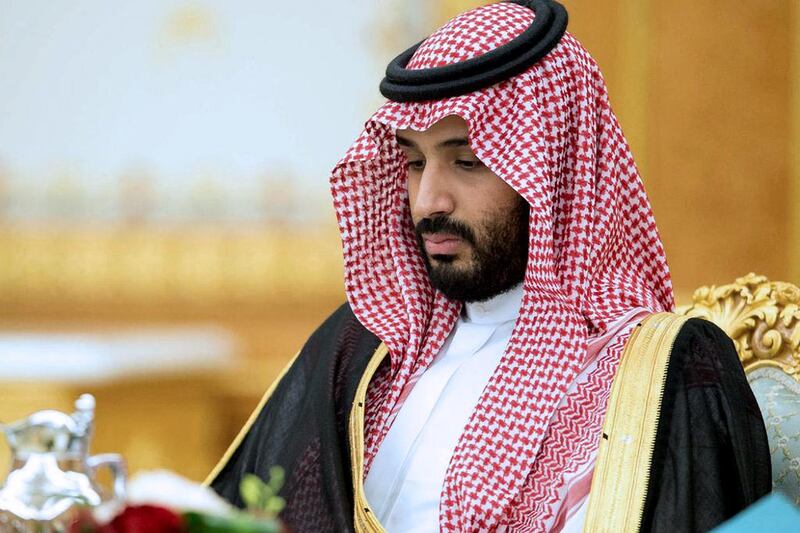Prince Mohammed bin Salman, Saudi Arabia’s deputy crown prince, promised to build a national defence conglomerate, launch “the biggest IPO in history” and end the country’s reliance on oil revenues by 2020, as he announced new details of the long-awaited economic reform programme that was approved on Monday by King Salman and the Saudi cabinet.
In an interview broadcast on the Saudi-owned TV channel Al Arabiya, Prince Mohammed, who is now in charge of economic policy, offered up a handful of new details of Saudi Vision 2030, policies intended to shore up the Gulf’s largest economy after it has been battered by declining world oil prices.
Oil dependence will end by 2020, Prince Mohammed said in the interview. “The kingdom can live in 2020 without any dependence on oil … The Saudi addiction to oil has disturbed development of many sectors in past years,” he said.
Among the proposals was a plan to launch a new defence company, combining Saudi industries under a single company that would be floated on the Saudi stock exchange by next year.
“How [can] we be the world’s third-largest spender on arms but [not] have a military industry?” Prince Mohammed said. “We are now about to establish a holding company for the military industries 100 per cent owned by the government that will be listed later in the Saudi market.”
More details emerged on the listing of state-owned oil giant Saudi Aramco. The country plans to list less than 5 per cent of Aramco, the conglomerate that the deputy crown prince said was worth more than US$2 trillion. Ownership of the remaining stake will be transferred to the Public Investment Fund, a sovereign wealth fund founded in 1971, whose assets will grow from the current $5 billion to more than $2 trillion under the prince’s plan.
__________
Full coverage
■ Saudi Arabia cabinet approves Vision 2030 reform plan
■ Construction professionals welcome possible easing of Saudi visa restrictions
■ Ambitious Vision 2030 pulls Tadawul index out of the red
■ Saudi reform plan to transform flagship carrier into money-maker
■ Saudi lenders biggest winners in Vision 2030's outlook
■ Saudi Arabia: selected economic indicators – graphic
__________
The plans would help improve transparency at Aramco, Prince Mohammed said. He previously said that floating a stake in the company would “counter corruption, if any, that may be circling around Aramco”.
“People in the past used to be upset that Aramco’s files and data are not announced, unclear and not transparent,” he said in on Monday’s interview. “If Aramco is listed, this means it must announce its [finances], it must declare every quarter,” he said. “It will become under the supervision of all Saudi banks and all Saudi analysts and thinkers. Or rather, all world banks and all research and planning centres in the world will intensively observe Aramco.” Saudi Arabia is also set to introduce a green card programme, modelled after the visa programme of the same name in the United States, under which foreigners are to be granted residency and employment rights in exchange for paying fees. The scheme, which is to be implemented within five years, “will allow Muslims and Arabs to live in Saudi Arabia for a long time and will be a source for revenue for the government”, Prince Mohammed said in the interview.
The country’s finances have been pummelled by the collapse in oil prices from above $110 per barrel in June 2014 to just over $40 per barrel now. At one point last year, the Saudi government worried that it would deplete all of its then-$700bn in foreign reserves in as little as two years, the prince said in a recent interview with Bloomberg.
It has since slowed its rate of asset depletion after an austerity budget in December, which aimed to cut spending by $98bn per year. The country will earn a further $100bn in new revenues by 2020 under the Vision 2030 plan, the deputy crown prince previously said.
“It’s a very ambitious strategy, far-reaching and comprehensive, and we think that is what is required given the scale of the challenge that they face,” said Masood Ahmed, the IMF’s chief Middle East economist, of the considered reforms.
“It is very useful to lay out a vision because it helps to give the population a destination in terms of where and how the economy is going, why you need to make the changes and it gives a framework of the different changes that have to be made and policies that have to be implemented,” he said.
The country’s Tadawul All Share Index rose by 2.5 per cent on Monday, with the volume of equities traded reaching a four-year high.
abouyamourn@thenational.ae
Follow The National's Business section on Twitter





